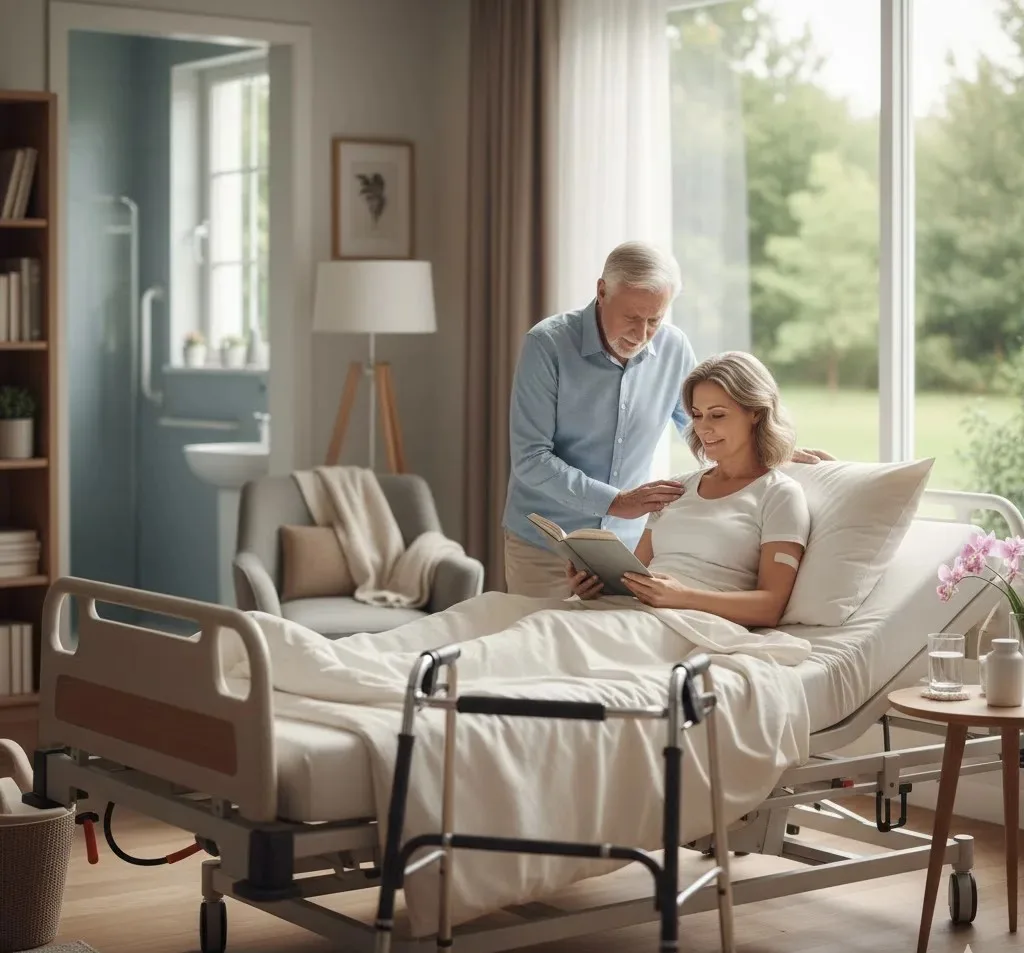

Recovering from surgery doesn’t end once you leave the hospital — in fact, the home recovery phase is just as important. With proper post-surgery care at home, patients can heal faster, avoid complications, and regain independence safely. This guide helps families understand what’s needed to create a supportive and safe recovery environment.
Why Post-Surgery Care Matters
After surgery, the body needs time to repair tissues, rebuild strength, and prevent infections. Proper post-op care ensures:
If your loved one has recently undergone a procedure, arranging post-surgery care at home is a vital step toward smooth recovery.
For patients with breathing issues post-surgery, you can also read our guide on BiPAP benefits for COPD patients at home.
Caring for a post-operative patient can be challenging, especially without the right equipment or guidance.
Some of the most common hurdles include:
Having the right support — such as trained caregivers and essential medical devices — can make recovery much easier and safer.
You can explore essential COPD home care equipment to understand how rental medical devices help in recovery.
A well-organized home environment plays a key role in recovery. Consider the following setup tips:
For safe and comfortable healing, having the right medical tools at home makes a big difference.
Some essentials include:
You can easily rent or buy these devices online to make post-surgery recovery more efficient and affordable.
Even with the best home setup, always monitor for warning signs such as:
In such cases, contact your doctor immediately or visit a healthcare centre. If mobility is a concern, you can arrange home nursing or physiotherapy services for added safety.
Q1. Can surgery recovery be managed completely at home?
Yes, most post-surgery recoveries can be managed at home with the right care, guidance, and medical equipment. However, always follow your doctor’s advice.
Q2. How long does it take to recover after surgery?
It depends on the type of surgery and the patient’s health, anywhere from a few days to several weeks.
Q3. What medical equipment is essential for post-surgery care?
A hospital bed, wheelchair, walker, and basic hygiene aids are often recommended.
Q4. Should I rent or buy recovery equipment?
If the recovery period is short, renting is cost-effective. For long-term care, buying may be more practical. Check our rent vs buy comparison for COPD equipment for guidance.
Q5. How can I prevent infections after surgery?
Maintain wound hygiene, follow medication schedules, and use sanitised medical tools.
Providing effective post-surgery care at home is about creating a safe, comfortable environment where recovery can happen naturally. With the right guidance, support, and equipment, families can ensure their loved one heals smoothly and confidently.
👉 Explore essential medical equipment for a safe home recovery and make post-operative care stress-free for your family.